Preimplantation Genetic Testing
Preimplantation Genetic Testing
Your embryos can be tested as part of the IVF process for genetic abnormalities , in our in-house lab NexGenomics, before they are transferred to the uterus.
PGT-A
PGT-A (Aneuploidy) is designed to assess whether embryos have the correct amount of genetic material. Genetic material is housed within structures called chromosomes. When chromosomes are missing or extra, it can lead to improper development and functioning. Embryos with the incorrect amount of genetic material, known as aneuploid embryos, may result in a miscarriage or lead to the birth of a child with a genetic disorder. For example, Down Syndrome is caused by an extra copy of chromosome 21, or trisomy 21. Conversely, embryos with the correct amount of genetic material, known as euploid embryos, have a better chance of resulting in a successful pregnancy.
PGT-M and PGT-SR
While PGT-A can be used to screen aneuploidy for all embryos, families with specific inherited abnormalities can be benefited from a test previously known as Preimplantation Genetic Diagnosis (PGD). PGD is now subdivided into two categories:
Preimplantation Genetic Testing for Monogenic/Single-Gene Disorders (PGT-M) looks for specific inherited conditions caused by a single gene mutation, like Huntington’s disease, sickle-cell disease, Tay Sachs or Fragile X syndrome.
Preimplantation Genetic Testing for Chromosomal Structural Rearrangements (PGT-SR) looks for unbalanced embryos caused by parental chromosomal rearrangements, like reciprocal translocations, Robertsonian translocations, or inversions.
PGT Procedure
PGT is conducted during an in vitro fertility (IVF) cycle. When the embryo reaches the blastocyst stage, typically day 5 – 7 after fertilization, a few cells on the outer rim are removed and analyzed for genetic makeup.
Candidates for PGT-A
All women are at risk of producing aneuploid embryos. The percentage of aneuploidy significantly increases for women with advanced maternal age (>35). Studies have shown that for women with age 38-40 undergoing IVF, more than 60% embryos are identified to be chromosomally abnormal. The benefits of PGT-A include:
- Increases the chance of successful embryo implantation
- Decreases the risk for miscarriage
- Increases the change for a healthy baby
- Reduces the number of attempts for embryo transfer, potentially reducing the time and cost for IVF
Sex Selection with IVF & PGT-A
Gender selection has become a popular option for couples desiring to choose the sex of their children.
PGT-A allows couples to choose their baby’s sex by identifying male (46,XY) and female (46,XX) embryos prior to transfer to the woman’s uterus. Gender selection can also help prevent the transmission of certain genetic diseases that are carried on the X or Y chromosome, or sex-linked diseases. There is a generally high success rate for sex selection using PGT-A although there is always empirically a chance of error including gender selection and misdiagnosis of gender.
HRC Fertility offers gender selection, sometimes referred to as “family balancing,” at all our clinic locations. Please contact us for more information or to make an appointment.

